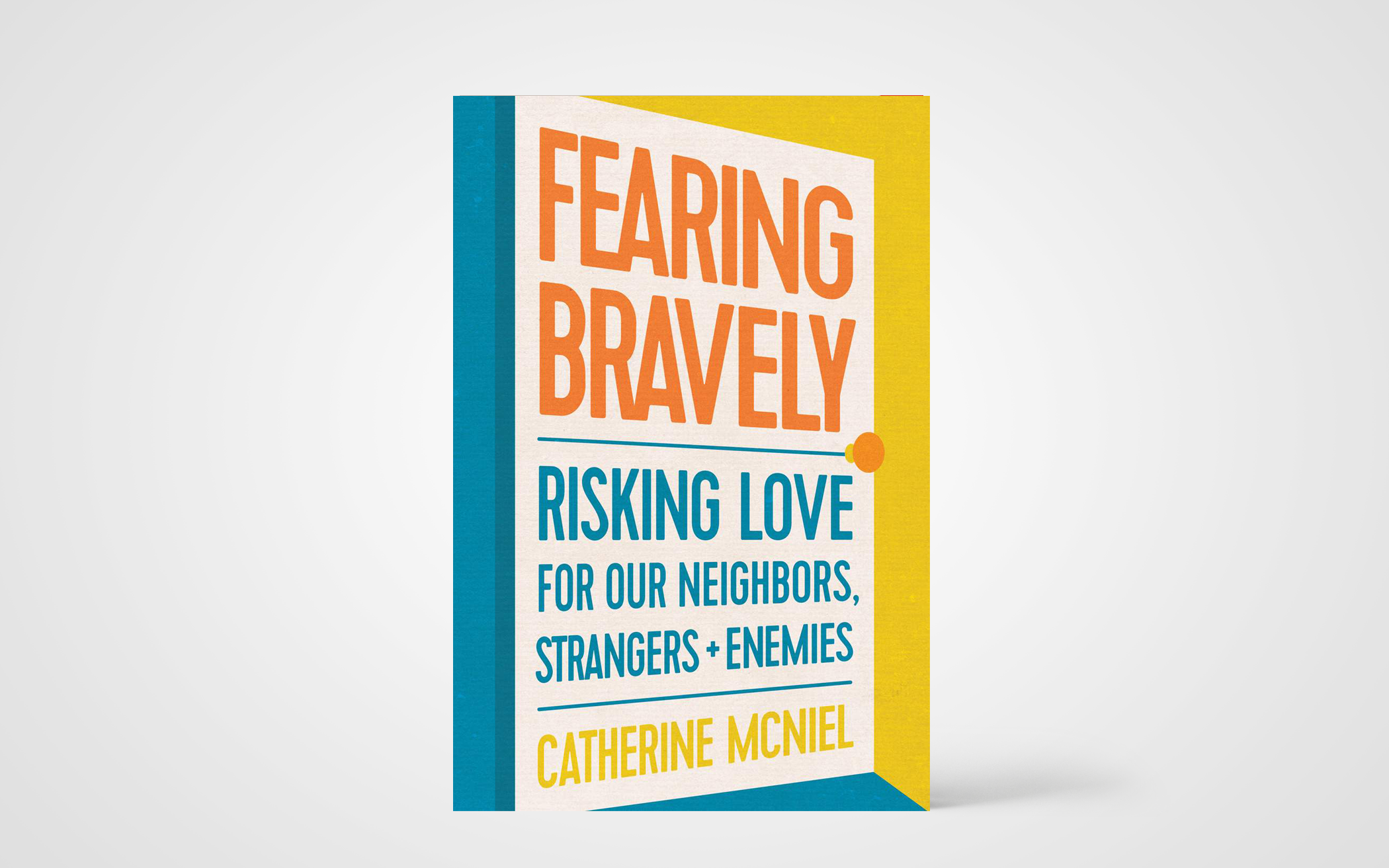I read Fearing Bravely a few months ago, and when I returned to it, I realized I had gleaned a transformational concept from it, one that I was practicing in my everyday life: loving my enemies and praying for those who persecuted me. Old news, right? But Catherine McNiel flipped the script on this foundational truth, stirring me to not only view this mandate differently, but live it out in a new way.
It was always hard for me to think of who my enemies were; after all, I wasn’t exactly staring down the barrel at a horde of enemy soldiers. But McNiel points out that our enemies are anyone we find odious and that the word for loving these folks is agapao, a verb form of agape. It’s an action word that connotes service and doing good things for those whose behavior and rhetoric we can’t stand. (In one case, I offered free concert tickets to an acquaintance whose political Facebook posts made me angry. Interestingly, I can tolerate her posts much better now. Go figure!)
But some enemies must be loved from a distance. “A woman fleeing her violent ex-husband should not meet him for coffee. … But we can pray. We can refuse to perpetuate the cycles of vengeance, hatred and fear,” McNiel writes. “Jesus didn’t bring casseroles to the people in Jerusalem plotting his death. … Jesus prayed for them.”
Loving one’s enemies is one of three sections in the book. The first part is about loving our neighbors, as opposed to fearing them. Unfortunately, North American evangelicals are riddled with fear. “When I type ‘Christians are’ into my search engine, it reveals that Christians are known for their fearfulness … the most afraid, the most easily swayed by conspiracy theories, most quickly driven to hatred,” she writes.
Why are so many Christians taught to fear their neighbors? McNiel outlines some reasons, and offers practical ways to dismantle our fear and love better.
From there, McNiel moves into a discussion of welcoming the stranger. “We are not to withhold hospitality or help from anyone in need. So why do we fear strangers, especially those needing hospitality, afraid that their presence may threaten what we have?” Good question, and McNiel wrestles faithfully with it in these pages.
The book ends with a section on loving our enemies, which to me is worth the price of the book alone.
Whether it be caring for our actual neighbors, welcoming the strangers in our midst and offering gritty hospitality, or grappling with what it means to love our enemies, this book shows us how to combat our fear problem with brave love. And brave love must be practiced and practiced, like piano or soccer, in order to get better and stronger.
“Jesus prescribes love as the antidote, a daily regimen replacing disdain with dignity and hospitality,” McNiel writes. “This is an exercise we will need to practice intentionally and indefinitely, every day of our lives, lest contempt destroy our love.”
For anyone who wants to love better and fear less, Fearing Bravely offers a compassionate, durable roadmap. It won’t be easy or fun in most cases (although the concert ticket thing was kind of fun, to be honest), but cultivating brave love is worth it. (NavPress)
About the Author
Lorilee Craker, a native of Winnipeg, Man., lives in Grand Rapids, Mich. The author of 16 books, she is the Mixed Media editor of The Banner. Her latest book is called Eat Like a Heroine: Nourish and Flourish With Bookish Stars From Anne of Green Gables to Zora Neale Hurston.

